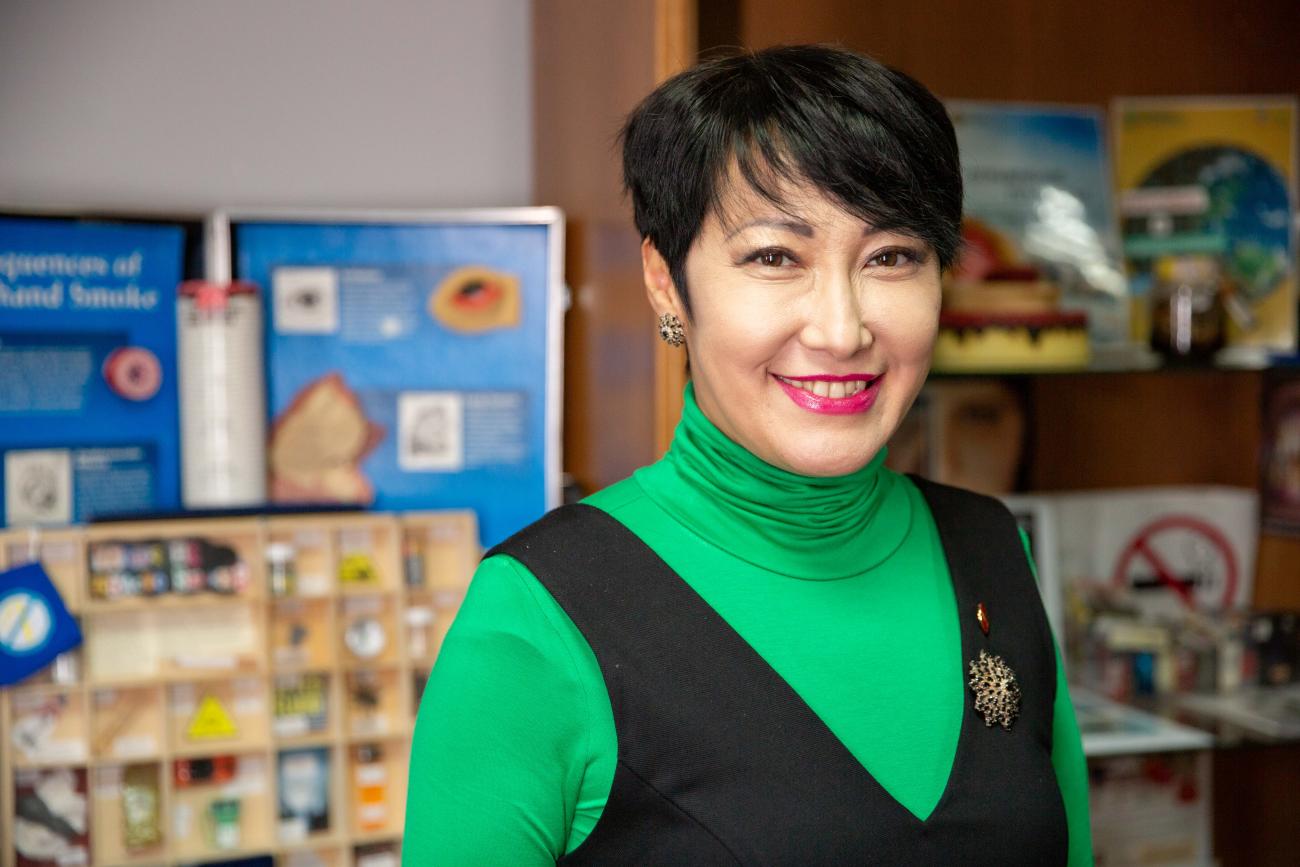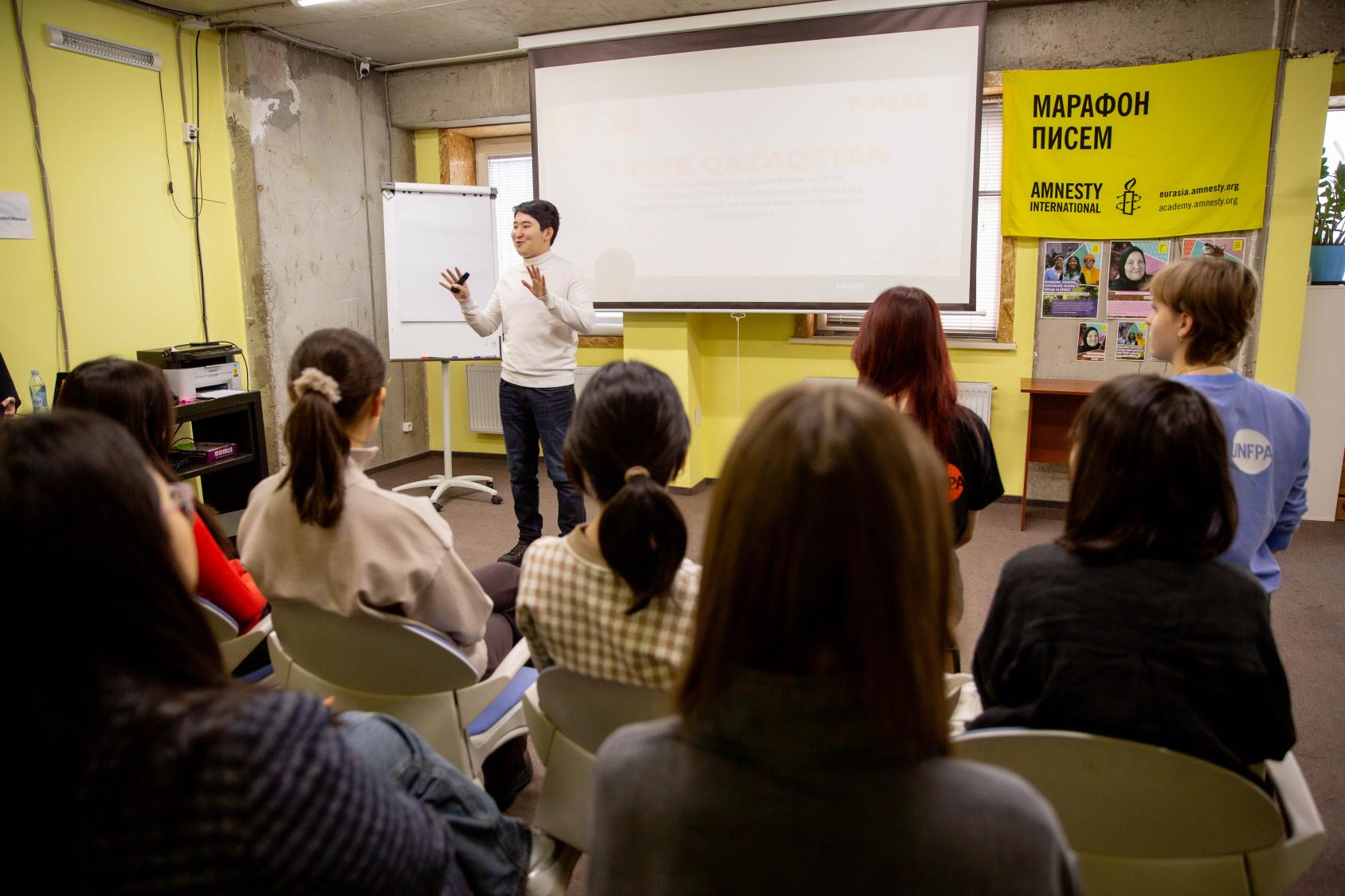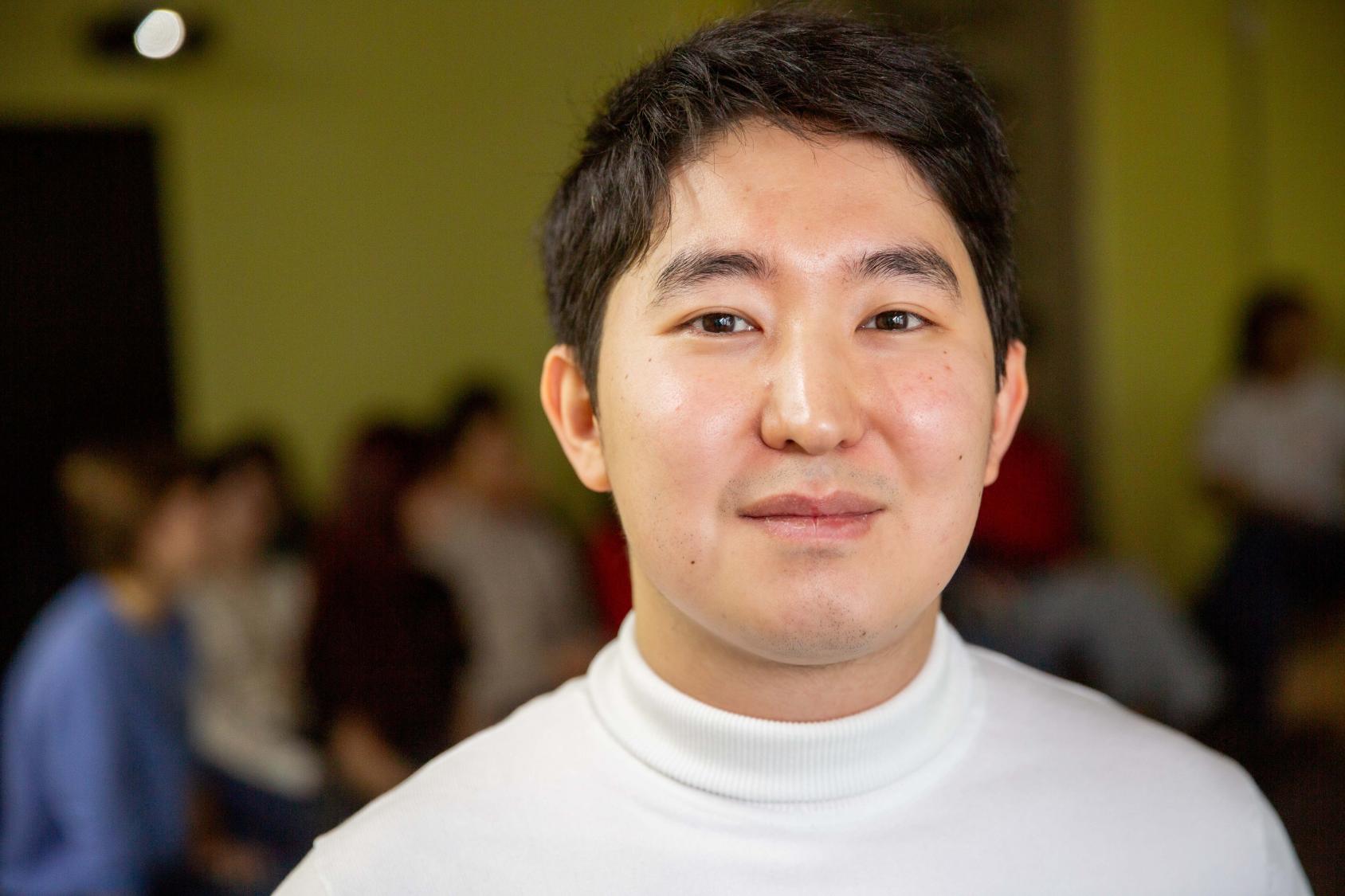Kazakhstan’s Health Champions: Fighting for a Smoke-Free, Safer Future

When Jamilya Sadykova started speaking out against tobacco nearly 20 years ago, people laughed. A ban on cigarettes? Maybe. But vapes? Forget it.
Today, thanks in large part to her relentless advocacy, Kazakhstan has done just that—becoming one of the first countries in the region to ban the sale, import, and marketing of vapes and electronic nicotine products. It’s a public health victory years in the making, and Jamilya’s name has become synonymous with it.
Her motto is simple: “See the goal. See no obstacles.”
As the founder of the For a Smoke-Free Kazakhstan coalition, Jamilya has faced down powerful industry lobbies and overcome political inertia. Her fight was driven by one alarming fact: the number of young people aged 13 to 15 using vapes had nearly doubled in recent years.
“This law didn’t come from nowhere,” she says. “It was built on years of advocacy, backed by data, with support from civil society, parliament, the Ministry of Health—and the World Health Organisation (WHO). Without that ecosystem, we wouldn’t have made it.”
While Jamilya’s fight centers on what goes into young people’s lungs, Dr. Aslan Temirkhan is working just as hard on what they carry in their hearts and minds.
As a medical doctor and coordinator of the UN Population Fund (UNFPA)-supported Y-PEER network in Kazakhstan, Aslan has trained thousands of young people on sexual and reproductive health, gender-based violence, and human rights. He believes knowledge is the most powerful form of prevention.
“In a clinic, I might see a few patients a day,” he says. “But through Y-PEER, we’re reaching entire classrooms, communities, even regions.”

UN coordination behind the scenes
Behind these individual champions is a broader system of support. The United Nations in Kazakhstan—through agencies like WHO, UNFPA, the UN Children’s Fund (UNICEF), and the UN Development Programme (UNDP)—has worked closely with national authorities and civil society to bring evidence, policy expertise, and partnership-building into the fight for public health.
The UN Resident Coordinator’s Office has played a central role in fostering these synergies, helping connect the dots across ministries, development banks, and the private sector. It’s also been instrumental in mobilizing new investments that put equity and innovation at the center of health policy.
One standout is the Joint SDG Fund-backed initiative on Digital Health Transformation, which is helping Kazakhstan create a gender-responsive national digital health strategy. With an initial USD 250,000 in seed funding and over USD 7.8 million mobilized through co-financing, the initiative is transforming healthcare delivery—improving data systems, strengthening infrastructure, and reaching over 270,000 healthcare professionals.
From Jamilya’s community-driven tobacco reforms to Aslan’s youth-led prevention efforts, these stories are more than individual wins. They represent a coordinated effort to advance SDG 3—ensuring healthy lives and promoting well-being for all.

A platform for the future
As Kazakhstan prepares to present its Voluntary National Review at the 2025 High-Level Political Forum, these stories bring the statistics to life.
They show that progress is not abstract. It’s personal. It’s hard-fought. And it’s made possible when bold individuals are backed by evidence, resources, and long-term partnerships.
Jamilya is already planning her next campaign—targeting flavored tobacco and emerging nicotine products like snus, a smokeless tobacco placed under the lip that’s gaining popularity among youth.
Aslan is scaling up peer-to-peer training to reach even more rural areas.
And the UN is staying the course, working hand in hand with national counterparts to translate local action into transformational change.
This is the vision of the Pact for the Future in action: healthier, more resilient societies built through people-powered change and multilateral cooperation.
Because building a better future starts with protecting those who will inherit it.
To read more about the UN's work in Kazakhstan visit kazakhstan.un.org.













